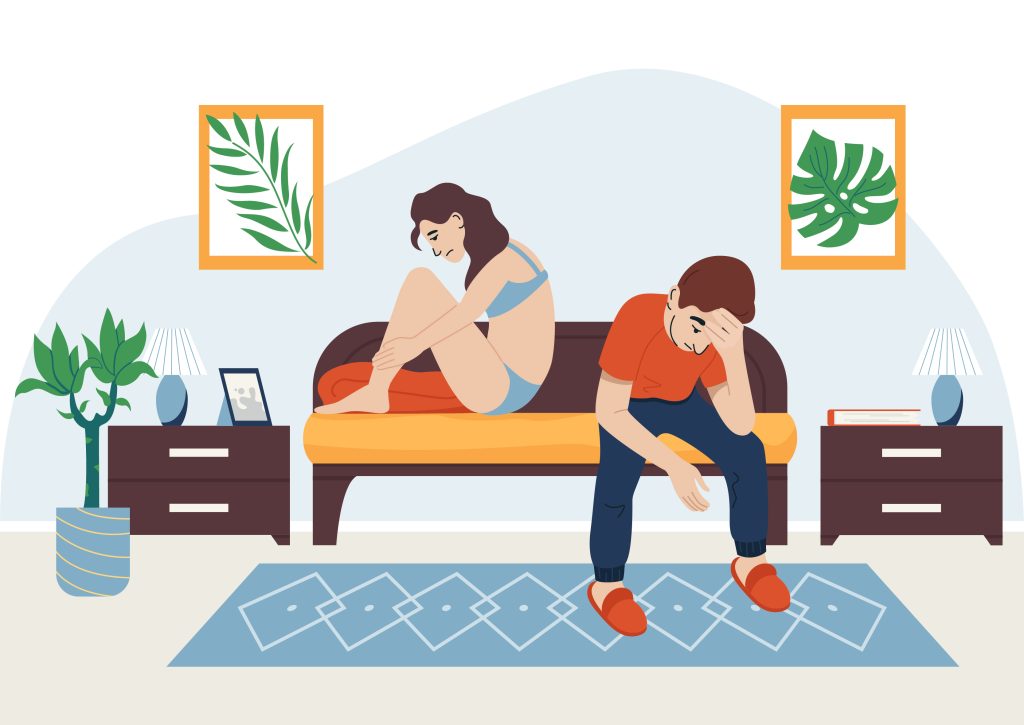When it comes to bed performance during sexual activity, many individuals strive to increase stamina on bed and improve their performance in bed. The ability to last longer during intercourse not only enhances satisfaction for both partners but also contributes to overall relationship satisfaction. In this article, we delve into natural ways to increase stamina in bed and explore various techniques and strategies to achieve this goal.
Many individuals seek ways to improve their sexual endurance and prolong intimacy. Understanding the science behind lasting longer in bed can provide insights into techniques and strategies that can help achieve this goal. From psychological factors to physical techniques, various approaches can contribute to extending sexual performance.
Long-lasting performance in bed is a topic that holds significant importance for individuals and couples alike. It’s not just about the physical act but also about intimacy, connection, and satisfaction. Understanding the science behind long-lasting performance can help individuals increase time on bed and enhance overall well-being.
What is premature ejaculation?
Premature ejaculation (PE) is a common sexual dysfunction characterized by the uncontrollable and early release of semen during sexual activity, often happening sooner than desired by either partner. This condition can lead to distress and dissatisfaction in sexual relationships and may affect one’s self-esteem and overall quality of life.
Premature ejaculation refers to the rapid and involuntary ejaculation that occurs shortly after sexual stimulation, often leaving both partners unsatisfied. It is essential to understand the causes, symptoms, and available treatments to address this condition effectively.
Premature ejaculation can occur due to various factors, including psychological issues such as performance anxiety, relationship problems, or stress. Biological factors like abnormal hormone levels, thyroid problems, or abnormal reflex activity of the ejaculatory system can also contribute to the condition. Symptoms of premature ejaculation may include consistent ejaculation within one minute of penetration or an inability to delay ejaculation during intercourse, leading to distress or frustration. It’s crucial for individuals experiencing premature ejaculation to seek help as this condition can impact relationships and self-confidence.
| Aspect | Description |
|---|---|
| Definition | Premature ejaculation is defined as ejaculation that occurs sooner than desired, either before or shortly after penetration, causing distress or dissatisfaction. |
| Causes | Psychological factors, such as anxiety or stress, and biological factors, like hormonal imbalances or hypersensitivity, can contribute to premature ejaculation. |
| Symptoms | Rapid ejaculation, inability to delay ejaculation, and distress or frustration related to sexual performance are common symptoms of premature ejaculation. |
| Treatment Options | Behavioral techniques, counseling, medications, and topical creams are among the treatment options available for managing premature ejaculation. |
| Impact on Quality of Life | Premature ejaculation can lead to relationship issues, low self-esteem, and decreased sexual satisfaction, affecting overall well-being and mental health. |
1. Talk with Your Partner
Communicating openly about sexual concerns is crucial for improving intimacy and reducing anxiety. Couples who discuss their sexual preferences and concerns tend to have more fulfilling sex lives. Tips for starting this conversation include choosing a comfortable time and place, being clear and non-accusatory, and agreeing on a plan together.
2. Lifestyle Adjustments
A healthy lifestyle can positively impact sexual function. Factors such as obesity, smoking, and stress can negatively affect sexual performance. Making lifestyle changes such as avoiding recreational drugs, quitting smoking, moderating alcohol intake, exercising regularly, eating a balanced diet, and managing stress can lead to better sexual health.
3. Foreplay
Foreplay can play a crucial role in extending sexual activity and increasing satisfaction. Studies show that a significant number of women require clitoral stimulation for orgasm during intercourse. Incorporating oral sex or manual stimulation can help enhance sexual experiences and ensure both partners are satisfied.
4. Pelvic Exercises
Strengthening the pelvic floor muscles can improve bladder control and delay ejaculation. Simple exercises such as stopping the flow of urine midstream can help build these muscles over time. Some individuals may benefit from pelvic floor physical therapy to address specific muscle issues.
5. Biofeedback
Biofeedback is a technique that uses electrical signals to help individuals control their body’s response to stimulation. By learning to delay orgasm, individuals can improve their sexual endurance. This technique is often supervised by a healthcare professional and involves exercises and visualization techniques.
6. Edging
Edging, or the stop-start method, involves stopping sexual stimulation just before orgasm and then resuming after a brief pause. While it may not fully treat PE, it can be a helpful short-term strategy for delaying ejaculation. Both men and women can practice edging to enhance their sexual experiences.
7. Sexual Techniques
Various sexual techniques, such as the squeeze method and deep breathing, can help individuals delay ejaculation and prolong sexual activity. These techniques can be effective when practiced consistently and can gradually increase the duration of sex.
8. Therapy
Psychotherapy can help individuals address underlying psychological causes of premature ejaculation, such as anxiety or relationship issues. Couples may benefit from attending sex counseling sessions together to improve communication and intimacy.
9. Sex Toys and Penis Rings
Sex toys can provide alternative ways to practice controlling orgasm and increase pleasure for both partners. Penis rings, while not proven effective for PE, can enhance sexual pleasure and provide a new experience for couples.
In conclusion, lasting longer in bed is achievable through communication, lifestyle changes, and various techniques. By understanding the science behind sexual performance and exploring these strategies, individuals and couples can improve their sexual experiences and intimacy.








Your article helped me a lot, is there any more related content? Thanks!
I don’t think the title of your article matches the content lol. Just kidding, mainly because I had some doubts after reading the article.
Thank you for your sharing. I am worried that I lack creative ideas. It is your article that makes me full of hope. Thank you. But, I have a question, can you help me?